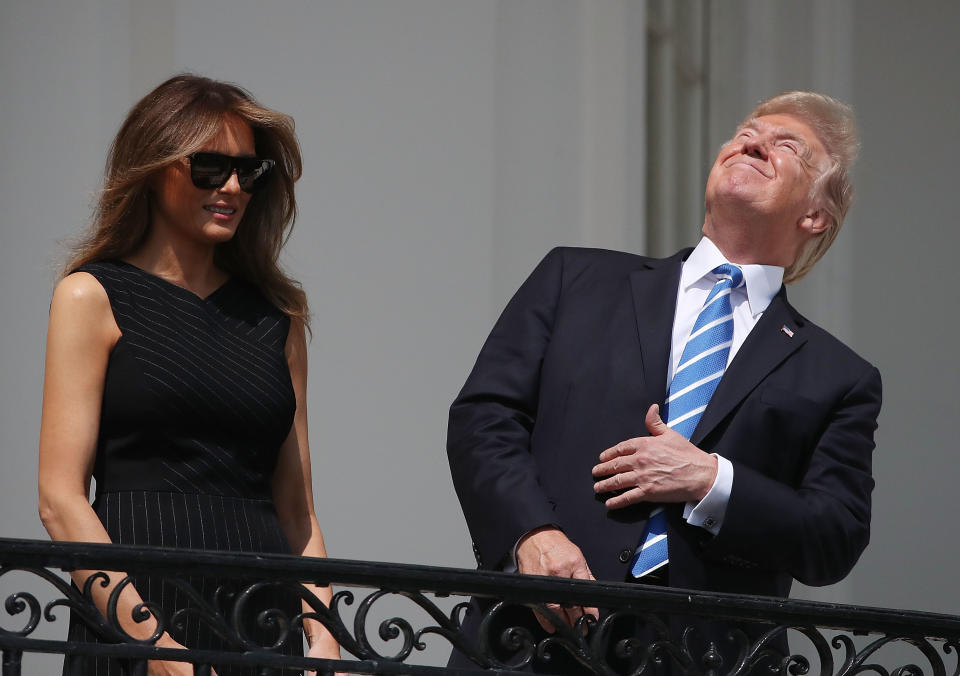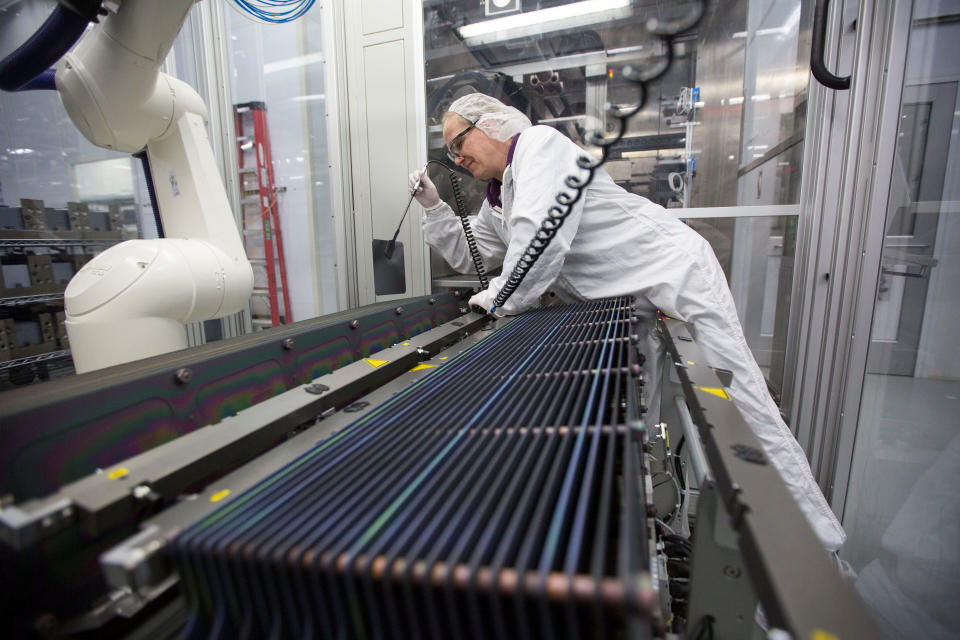Solar industry is split on Trump’s tariff plan
The U.S. solar industry is split over President Trump’s decision to slap a 30 percent tariff on imported solar panels in an effort to help domestic manufacturers.
SolarWorld Americas Inc. and Suniva — two subsidiaries of foreign corporations that produce solar panels and cells in the United States — petitioned the U.S. International Trade Commission (ITC) to protect their industry from competition with less expensive products from overseas, most notably China. They celebrated the announcement Monday from U.S. Trade Representative Robert Lighthizer declaring that Trump had approved proposed relief tariffs for the next four years: 30 percent in the first year, 25 percent in the second, 20 percent in the third and 15 percent in the fourth. Lighthizer accused China of using state subsidies to increase production, keep prices low and dominate the global supply chain.
At the same time, the White House announced plans for tariffs on washing machines, which would primarily affect imports from South Korea.
The administration’s decision has divided solar panel manufacturers and the companies that install the panels, or make and install related components, who fear the tariffs will raise costs, hamper the industry’s growth and kill tens of thousands of jobs.
Ben Santarris, a spokesman for SolarWorld Americas, one of the country’s largest solar panel producers, said he hopes the president’s decision will promote a resurgence in U.S.-based solar panel manufacturing. He argued that the demand for solar energy will continue to rise and that this should benefit American workers.

“This is an extremely important decision for U.S. manufacturing in the solar industry. We’re hopeful it’s going to address the global imports surge and unfair trade practices of foreign manufacturers,” Santarris told Yahoo News. “The case is about saving and rebuilding this U.S. industry. We’re the second-largest solar market in the world, and yet almost all of our manufacturers have been put out of business by China.”
SolarWorld Americas is a subsidiary of SolarWorld, based in Germany.
The tariffs were opposed, however, by the Solar Energy Industries Association (SEIA), the national trade association for the U.S. solar industry, and its member companies. They argue that it will cost about 23,000 American jobs this year and disrupt billions of dollars in solar investments.
According to SEIA, the U.S. solar industry accounted for roughly 38,000 manufacturing jobs by the end of 2016 — only 2,000 of those in the production of solar cells or panels. The remaining 36,000 dealt with other products that enhance the panels, such as metal racking systems or inverters that turn the panels’ direct-current output into usable alternating current.
During a press call Tuesday, Abigail Ross Hopper, the president and CEO of SEIA, said the tariffs will not help the economy, U.S. energy security or even U.S. manufacturing. She said one of SEIA’s next steps will be documenting how these tariffs affect American companies.

“This decision is going to have impacts on companies and when that happens, we’re going to capture those impacts,” she told reporters. “We’re going to document and record and be able to tell the story of what a 30 percent tariff means to solar companies in the U.S. — not in a theoretical way, not in a model way, but in an actual way.”
The decision follows through on the protectionist rhetoric that defined Trump’s campaign and first year in the Oval Office — delivering his first economic hit against China. He routinely criticizes China for what he considers unfair trade practices.
The approved tariffs fall short of SolarWorld Americas and Suniva’s initial request for 50 percent tariffs. Nevertheless, SolarWorld Americas lauded the president and the U.S. trade representative for recognizing “the importance of solar manufacturing to America’s economic and national security.”
Hopper, on the other hand, advocated for a global solution that could benefit all companies up and down the supply chain and would open up the Chinese market to American polycrystalline silicon, a raw material used in most solar energy applications: “Our economy benefits when we have free trade.”
“If you think about who’s going to be impacted by this decision, it’s going to be the countries where there was the largest number of imports in the last year,” Hopper said. “Those are countries like Thailand, Malaysia, South Korea — important trading partners and ones that will be significantly impacted.”

Santarris countered that SEIA has warned that other cases would result in the solar industry declining, but that this hasn’t happened: “The solar market kept growing as it will continue in future years.”
Suniva filed its petition shortly after declaring bankruptcy in April 2017. SolarWorld Americas joined as a co-petitioner the next month. In August, on behalf of these companies, Mayer Brown, a Chicago-based law firm, published an economic analysis that found the tariffs could result in between at least 115,000 and 144,000 new jobs across the entire U.S. solar industry — with 45,000 in manufacturing alone. This contrasts with SEIA’s findings that they would cost tens of thousands of American jobs.
Lighthizer recommended these “safeguard tariffs” to Trump after consulting with the interagency Trade Policy Committee. They discussed the findings of the ITC that foreign imports of solar modules and residential washing machines were seriously harming domestic manufacturers.
“Upon receiving these recommendations, my staff and I conducted an exhaustive process which included opportunities to brief in person and through public comments, public hearings, and meetings with senior representatives,” Lighthizer said in a statement. “Based on this information, the Trade Policy Committee developed recommendations, which the President has accepted. The President’s action makes clear again that the Trump Administration will always defend American workers, farmers, ranchers, and businesses in this regard.”
Environmentalist groups regularly denounce Trump for his attacks on government regulations and renewable energy, but few, if any, interpreted the tariffs as part of this problem. This time the divide is between protectionism and free trade.
Read more from Yahoo News:



